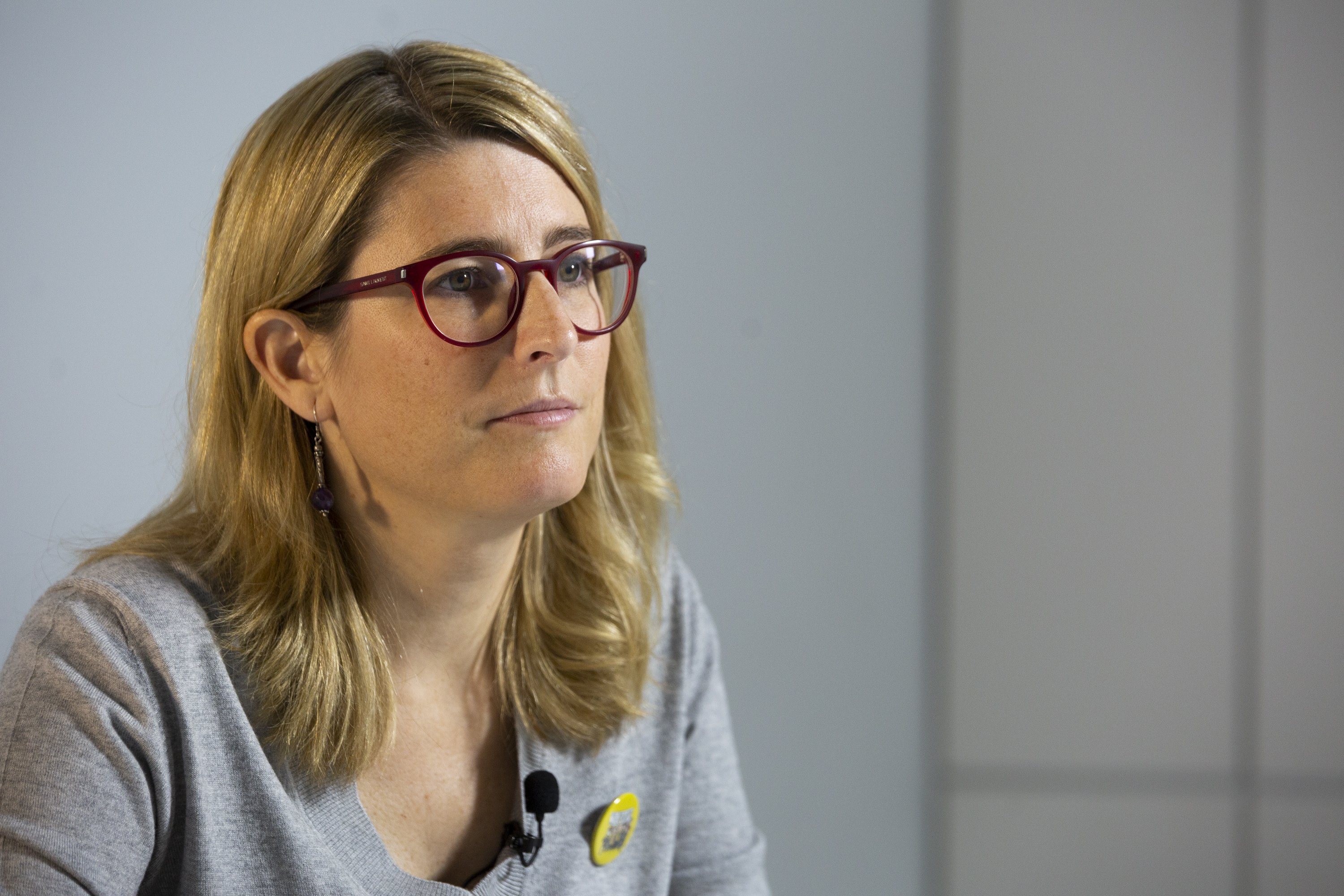After taking part in last Thursday's meeting with the Spanish government, Catalonia's minister for the presidency, Elsa Artadi (Barcelona, 1976), says she values the importance of the meeting and the joint declaration that came out of it, in which the existence of a conflict over the future of Catalonia is recognized by both sides. The minister welcomes the commitment to dialogue that was made and is not concerned about the declaration's call to look for solutions within a framework of legal certainty, "because laws are adapted to political decisions." Ardati, who despite the air she conveys of a straightforward, hard-working student has consolidated herself as one of the most powerful voices in the Quim Torra government, warns Pedro Sánchez that he cannot continue trying to have it both ways and that he will have to decide "whether he is in charge or is still a puppet of the state." Below, El Nacional's exclusive interview with Elsa Artadi.
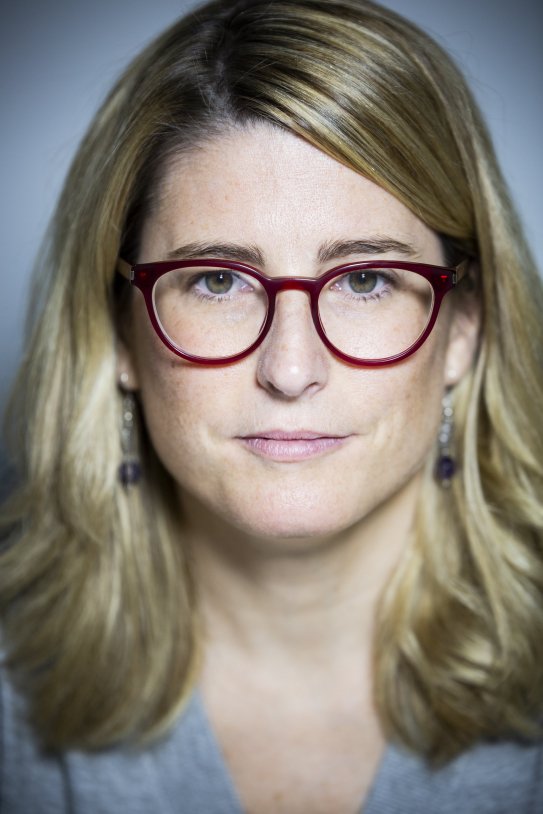
What has changed since Spanish prime minister Pedro Sánchez landed in Barcelona this last week?
Pedro Sánchez did two different things. His cabinet meeting, which provoked the consequences it provoked, ill-feeling in society and inconvenience in people's day-to-day; as well as the whole cost of this trip, the hundreds of police officers who had to provide security for the cabinet meeting; and also the consequences for the image of the city, which was placed in high security mode.
And there was also a meeting with the Catalan government...
Yes, there was the meeting between the two governments, the day before, in Pedralbes. Our understanding is that this meeting should have been held in September and not left until the end of December, when they took advantage of the fact that the cabinet was coming here...
How was the meeting?
What we wanted to convey to Sánchez, is that he cannot continue to remain at the level of rhetoric, only talking sketchily; he has to come down to earth into what must be a dialogue and a political solution. We are here to work on this path of dialogue, which is our priority route. But for dialogue, two sides are required. The day selected, and having to tie it in with the cabinet ministers, was not ideal, but we take advantage of any occasion, wherever we may be, because we also believe in the path of dialogue, we have to try to give it continuity.
There was a preamble to the meeting to decide whether it was a summit or a meeting of heads of government...
Yes. It's a bit ridiculous.
And it shows the degree of difficulty of a meeting, when it begins with the complication of defining what sort of meeting it is...
Exactly.
Did any result come from it? Has anything changed in relation to the July meeting?
It could be that it did. We insisted that it was unacceptable, after the two leaders had met in July and said that continuity was necessary, that here we are, five or six months later without anything happening. This is not dialogue, nor is it anything. It's pulling our legs. We demand a methodology or recurrence in the meetings, or to start exchanging papers and putting together teams that will regularly meet ... Or in six months we will find ourselves in a worse situation than we are now.
Either we really start working or in six months, the chances of really having an effective dialogue will be smaller
Why?
We told Sánchez that in the month of June, when the pro-independence parties made him prime minister, there was a glimmer of hope. It was not a big change, because in the end, Sánchez's own party, the Socialists [PSOE], voted to apply article 155 in Catalonia and was actively complicit in the repression here. But there was a small chance of a change, that he as Spanish prime minister would take power, would lead and not allow the same people to continue in control. There was a hope that this would change the paradigm and a new phase began. This happened in June, but now the PSOE, the Sánchez government, has dropped its asking price much lower than six months ago. We also told him that. He told us that it takes time, that things are complicated. I don't know if six months is a long time or a short time. If you're in prison it's a long time. To be under repression, for us it's a long time. In any case, it's the time that we have, and the circumstances are as they are. What we wanted to express to Sánchez is that it is unacceptable to use the excuse that it's difficult, to say, we'll look at in six months and see how we are. Either we really start working or in six more months, the chances of actually having an effective dialogue will be smaller. So, we have to start on it now.
Was there any change in relation to the July meeting?
For us, the joint statement is a step forward. That has never happened before. A joint statement with the recognition that the key element is to decide the future of Catalonia, that it has to be the Catalan society that decides, that it must be a political solution. Would it have been good to have gone further? Obviously, but it is a step. A meeting between the two governments, which was also something that never happened in 40 years of democracy, is also a step. And we understand that it could be a step forward to have formalized that after the Christmas break there will be a meeting of four - two on each side - interchanging documents and starting work, to bring the positions slightly closer.
And just where should this moving closer begin?
We need to bring closer our visions of where we are, not just where we have to go, what the options are. We have to see whether we ourselves have to be the ones who will conduct it in the day-to-day, whether it has to be passed to a more technical-legal committee of independent people... But we must decide now what path we will follow because if not, in six months, if Pedro Sánchez's government still exists then, we will be worse than we are now.
In this joint document there is an agreement that a conflict exists over the future of Catalonia, but there are a lot of disagreements ...
It is obvious that there are disagreements. The decisions taken by the PSOE in the last year have been unbelievable. How can it be that the PSOE government doesn't say anything when there are MPs who are in jail, when electoral results are not being respected, when parliamentary majorities are altered by a totally politicized justice system? How could a party like the PSOE not be concerned about that? In theory these people are the ones who fought precisely to restore democracy, to bring the Spanish state into line with Western Europe ... And they go so calmly into the Catalan chamber, especially the Catalan Socialists [PSC, Catalan partner of the PSOE], full of yellow bows, full of people who can't vote, who are in jail, in exile, knowing that many MPs in the pro-independence majority had to resign from their parliamentary places due to the pressure, because of the possible consequences that this would have on the trial which will probably start in a month. How can they rest easy with all this? What is unacceptable is that the response of Spanish Socialism is to say we told you it would have consequences, that is, we told you that Spain is not a democratic country, that the institutions were not healthy... This is not what life is about, either you have principles and you struggle for those principles or, if not, you become an accomplice to what is happening.
And what answer are you now expecting from Sánchez?
We have reached a point at which the impact that the PSOE is to make must be defined, that Pedro Sánchez must define himself, whether he is in charge or others are, he has to define if he wants to go into history as a statesman, as someone who really tries to resolve the issues, or alternatively, that the same Spanish state as always, the regime of '78, continues at the helm, and that he has no importance and is just out to obtain some short-term election results. He has to properly define himself.
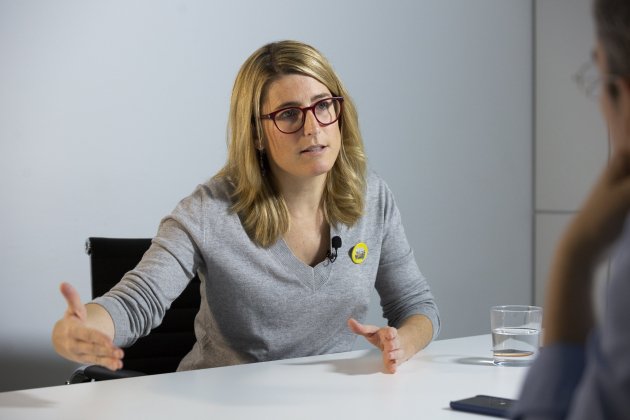
Does this indefinition also appear within the PSOE?
Within the PSOE there are now two souls, two families, two ways of seeing the world and one is very similar to the PP [Popular Party] and Cs [Ciudadanos]. Some of the voices, some of the PSOE regional barons sound like [former PP leader] José María Aznar. I find it is an attitude that lacks courage, lacks bravery, with very little sense of state, and electorally it seems to me to be a failed strategy. On the other hand, there are other voices that are more courageous; we saw the example last week of former Socialist prime minister Zapatero. I don't agree with everything that he said, but I think it's a starting point. With this kind of declaration, we can begin to talk.
In any case, for the moment, it seems that the strategy is to sit in the middle, to make some strong gestures against the independence movement, and on the other hand, gestures of dialogue...
But this strategy does not lead anywhere, it is a strategy of maintaining the status quo and maintaining the repression. If you do nothing, you are endorsing the [harder line] strategy that was decided a year ago, something that I have the impression was not decided by him but rather he was obliged to accept. But now he has taken some steps forward, he has won battles, he has managed to become the prime minister and, therefore, must decide whether he exercises government or is still a puppet of others, of the whole state. He has to decide whether he is brave or if he's going to let himself be carried along. But staying in the middle right now implies that the repression is fine, that it is still valid.
It is not acceptable that entering into dialogue is seen as a weakness when it is a strength; that it is seen as surrendering, when it is a search for a solution
However, when Sánchez comes here, the mere fact of meeting with the Catalan government and agreeing to the joint statement prompts a plethora of criticisms and accusations from the PP and Cs against him. The margin he has seems very small...
I see it as just the other way round. The fact that when Sánchez says that dialogue is the correct path and the political solution, and the extreme right jumps on him opposing dialogue; that should further encourage him to follow this path. It is not comprehensible that in Spanish politics dialogue is seen as a weakness when in fact it is a strength; that dialogue is seen as surrendering when in fact it is searching for solutions. It has to make him think. We have also said this. I understand the parliamentary questions they have to respond to and the front pages they have to put up with, but long ago we let them know that this happens. Here, the repression was started by the extreme right via [Barcelona] court number 13, and they were the ones responsible for the first arrests on September 20th last year. We warned them long ago; on the other hand, they, with the excuse of the unity of Spain, went to demonstrations shoulder to shoulder with the [far right], gave them the stamp of approval and made them turn into something big. And now we're going to have a trial in which they [far-right Vox party] have a private prosecution, they are allowed to mount a private accusation and will have several months of media focus. This should encourage them even more, that is to say, you have to be clear about your principles, and if they are democracy, rights and freedoms, then you have to fight harder for them.
There will always be legal certainty in the case of an agreed solution. The legal framework adapts to political decisions
When the joint declaration talks about achieving effective dialogue, it is stressed that this has to happen within the framework of legal certainty, which according to the Spanish government, is the legal framework of the constitution. How is an agreement on self-determination possible under these conditions?
If the path to solve the conflict or achieve the independence of Catalonia is through dialogue and a political solution, through an agreement between the Catalonia's government and parliament and the Spanish state, if the path is this one which we are trying to find and does involve dialogue and negotiation, then it is clear that this results in legal certainty. Whatever existing legal framework you have, in the end it adapts to political decisions, to political agreements. Therefore, it is a logical consequence, there will always be legal clarity in the case of an agreed solution, via an existing legal framework or adapted legal framework. Whenever there has been a political decision, giving the vote to women, for example, it was not in the legal framework, but the legal framework was adapted and gave it legal security. It does not worry or concern me that the document states legal certainty, because it seems to me the logical and rational route, which involves dialogue and negotiation, necessarily implies legal certainty.
That is, any agreement made between the two governments will have legal certainty...
It has to. Because laws adapt to political decisions. We in Parliament devote ourselves to just that, changing laws to adapt to political decisions. It is the law that adapts to the political consensus and that is what legal certainty means.
Why then this reluctance to explicitly mention the Constitution and the Statute when in the end legal certainty will be based on these texts?
No, no. Legal certainty will be based on the law that you create, ad hoc, to solve this problem. This could be a modification of the Constitution or an agreed referendum or an ad hoc law or it could be many things. Legal certainty is a concept that says that we will give legal protection to what we decide politically. "We" - above all, whatever is decided by the people of Catalonia, by the majority of Catalan society. When the agreed referendum in Scotland was given legal certainty, that didn't exist beforehand. You decide to give legal certainty to something that is a political agreement. That's exactly what it means.
Can there, therefore, be legal certainty even if the limits of the Constitution and the Statute are exceeded?
Obviously. As with every decision taken in the Parliament of Catalonia.
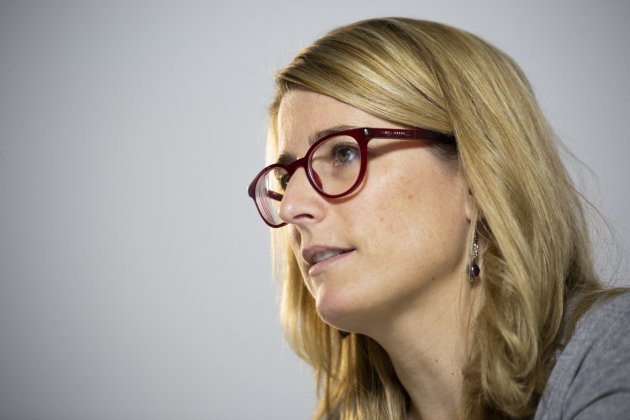
There have also been some alarm bells rung among the pro-independence area because of these movements. Carles Riera, of the CUP party, and Elisenda Paluzie, of the ANC civil group, are some of the voices that have been heard on this...
Carles Riera doesn't say that we shouldn't talk, but rather that if the dialogue doesn't include the right, and the recognition of our exercising the right, to self-determination, then this dialogue doesn't work. I totally agree. We can't reach an agreement with the Spanish government in which we say that as a government of Catalonia we decide that Catalan society will pawn one of its rights. We can't do that, because we would be going against international law, and the individual and collective rights of the people of Catalonia. But as well, we stood for election, both [main pro-independence parties] JxCat and ERC, prioritizing the path of dialogue. And that's what we're doing. I understand that there are people who say they are watching us closely because of this, I think they should be. But we have already said that we would try to follow this route. What we won't do, however, is in the course of the dialogue, to give away rights or positions in which we firmly believe.
And when, in the dialogue with the Spanish government, you say that the independence movement will not renounce a referendum or its right to self-determination, what is the answer? Do they believe it?
I understand that they do, because we say it publicly, privately and we say it every day. That is to say, they can't think that we will give it up. There is a certain lack of knowledge about exactly where Catalan society is located. There are very broad consensuses in favour of a referendum to decide whether Catalonia must be independent or not, as well as against article 155, against repression. And all of that goes beyond the independence movement. These consensuses are very broad. And sometimes it seems as if they don't see that. They have voters who are against 155 and repression and in favour of a referendum. The proof is that until recently the PSC went into the Catalan elections backing an agreed referendum. Also, within the space of the [left-wing, non-aligned] Comuns political group there are people who are not pro-independence but are obviously part of these large consensus groupings. And it seems that they just can't see that. They don't read Catalan society well.
And is this the responsibility of the PSC, that they haven't explained it well to their Socialist colleagues in the PSOE?
Perhaps. Sometimes I ask: "Who do you talk to?" Because Miquel Iceta [PSC] knows all this. It cannot be that he doesn't know it. He sees the same surveys and walks along the same streets that we do. There is a large part of his voters who are against 155, against repression and in favour of a referendum. He must know that perfectly. I don't know if they don't listen to him enough or don't have an interest in seeing reality. When we talk about the nature and origin of the conflict and the difference between the position of the two governments, it seems that in very basic things that they are living in a very different reality. The spectacle of the Spanish government's cabinet meeting is another representation of this. They think that coming to Barcelona to hold a cabinet meeting strengthens them in Catalonia. And frankly, there has not been much applause for a cabinet meeting held at a time and place that could not have been worse.
Therefore, Sánchez knows that the Catalan government claims Catalonia's right to decide its future and that it will not renounce or give up a referendum?
Obviously. Obviously. It has two solutions. Either recognize the referendum that was already carried out, or have another one.
And what happens to the unilateral route to independence now? Because there was some interest in interpreting this document as an abandonment of a unilateral route...
I see this document as consistent and coherent with what we stood for at the elections and what we have been saying every day, and with what the governments of president Puigdemont and president Mas said; our priority route is through dialogue, and I believe we have given infinite evidence of that. We understand that it's the best way, that it's the majority position of the independence movement, but we can't abandon anything; if we do, they have it very easy: they just say there won't be a dialogue, and that's the end. They have to reflect, they have two million people who consistently express the will to stop being Spanish. They think that through repressing or ignoring this it will disappear. But that is being very limited politically.
In the situation we're in, it's clear that we will not vote in favour of the Spanish government budget
The Madrid government is deeply concerned about obtaining the support of the pro-independence parties for its budget. Is there any possibility?
There is every possibility as long as Pedro Sánchez decides to take the path of the political solution. Therefore, it is in his hands today, just as it was a week, a month, three months ago.
To 'take the path of the political solution', in return for a budget vote that must take place very soon, what does it mean?
He said six months ago that he has a plan for Catalonia. At the moment, the plan for Catalonia has not materialized at all. He has to decide to make an offer and for this offer to appear good enough to the pro-independence parties in Madrid to continue in the budget negotiation. In the situation we're in, for him to be going in no particular direction, which in the end means that he still backs the repression, means that we clearly won't vote in favour of the budget. It's obvious. He knows that perfectly. We've told him every day. In private and in public. I get the impression that they are still in a political culture of 'they are saying no so that we will raise our bid', but it is much simpler and more sincere than that. We are saying no because it is no. And the condition we have given is a political solution in Catalonia and we have said that from the beginning and we won't move from that. There is no way we can now enter into sectoral issues when we are ignoring the great challenge that the country has.
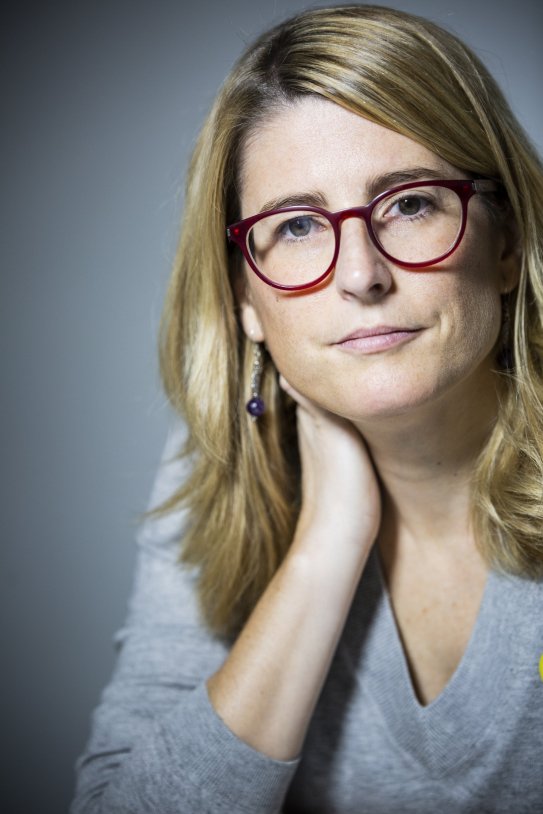
This Catalan legislature began a year ago. The government took a few more months to form..
That is indicative of the great anomaly. One year ago, the independence movement won the Catalan elections. And yet as time goes on, its parliamentary majority becomes more altered. With every day that goes by there is less democracy. When the elections were called, people on the right said: "Let them stand if they dare". No one said then [in relation to those accused of offences relating to the referendum]: "After the election, we're going to decide that all these people can't take part in democracy." It was very hard because we had president Puigdemont in the first days of exile, there were times when we couldn't even talk by phone, that we didn't have safe ways to talk, everything was very precarious. We had the president of the [JxCat] group, Jordi Sànchez, in [prison in Madrid], we were practically unable to visit him, because we were neither MPs or anything. We had to depend on communication through the lawyers all the time. It was a very difficult campaign. And for the ERC party, exactly the same, with its party president in prison, and other key members of the group also in prison or exile. They were very complicated elections, in which there was a very good election result. And yet, from there on, the parliamentary majority has been reduced, reduced, and reduced more.
One quarter of pro-independence MPs in the Catalan parliament are not able to freely exercise as representatives of the people. What is happening in the Spanish state is very serious
During this year, the pro-independence groups have repeatedly denounced this situation ...
People have to open their eyes to the attacks on democracy that we are suffering. Not only through the aspects we have said many times: the four attempts by parliament to invest a Catalan president that could not take place because judge Llarena prevented them, and the opposition decided that all this seemed fine; then there were all the MPs who had to give up their parliamentary places [to comply with judicial orders]; all the deputies that are investigated [for offences related to the independence process]; we have 25% of MPs in the pro-independence majority who can not freely exercise as representatives of the people. This is very serious. Every day that goes by it continues: two weeks ago there was a complaint by some parliamentary groups against the Parliament's presiding bureau for doing their job. Again. Threats every day. Every decision that is taken, every political commentary that is made. Everything is threats, threats, threats, crackdown, these are the circumstances we are in. Someone has to start opening their eyes to what is happening because we denounce it every day. And instead there are people who, since they are doing well in their short-term political and electoral strategy, decide not to make decisions. What's happening in Spain today is very serious.
In all this time the leadership of those at the top of the party groups has been maintained even if it has been from prison and exile. Has it been complicated?
The leaders are who they are. I absolutely refuse to stop using the political capital of the people who are in exile and in prison. Now, we have more or less stabilized the communication channels. Probably within a month, when the [referendum case] trial begins, all of this will again generate upsets. We have made all the use we could of the many months in Lledoners prison and we have been able to maintain a more fluid, more intense relationship. But it is clear that now, when the trial begins, it will break. That will be a very important moment. We would rather not have to go to a trial, but since we have to, it is a great platform for projection, there will be a spotlight on what is really going on. We saw it last week when the public prosecutor was openly lying about objective facts. It is important to show this to Catalan society, to Spanish society and especially at international level. It is very important. The prisoners are very aware, they are eager to go to trial, to take advantage of it. They have been doing a lot of preparation.
Do you have any confidence that the trial will be fair?
So far the whole case investigation has been extremely unjust. That is why there have been all the complaints at international level, that is why there was also a hunger strike, in order to get access to an international justice which is making completely different, systematically different decisions from those of Spanish justice. We have to do the work and we have to denounce everything, and if it is not a fair trial, and there are great possibilities that it will not be, we'll have to be able to take advantage of it to expose what is happening and make use of the other mechanisms.

